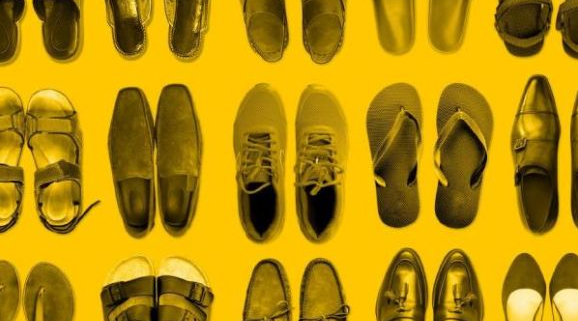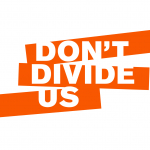Book review: ‘Among the Mosques: A Journey Across Muslim Britain’ by Ed Husain
Book review by Graeme Kemp
The question of belonging in a multi-ethnic and multi-religious nation is the stuff of many a political and sociological text. Ed Husain draws on ethnography to give us a more granular description of various Muslim groups whose differences are more than geography alone. Graeme Kemp’s review brings out a crucially important message: ‘The onus is on us to stubbornly uphold our way of life’ is a timely corrective to those look for someone else to hold responsible for problems that, in reality, are rarely the result of a single cause. This is not to deny the agency/responsibility of others, but to remind us that most things human are relational.
Ed Husain is a man who asks difficult questions – of everyone he meets. In his book Among the Mosques, he explains how he travelled across the UK, visiting mosques and talking to those he met. As he points out:
‘We must not shy away from these difficult questions: for, if we do, extremist voices will force a future upon us that will be divisive and destructive.” (Page 3).
Travelling in 2018 and 2019 – from London to the Midlands, to Scotland and Northern Ireland – Husain speaks to ordinary people and also clerics in a variety of different kinds of mosques, as well as those living in areas near mosques. The result is a challenging and sometimes disturbing account of the cultural dangers we face and the real threats to a cohesive, democratic society that is suitable for all. A Muslim himself, Husain ends the book with a clear rallying call for unity based upon the rule of law, individual liberty, equality and openness. As he points out:
‘If we lose any of this inheritance, we lose ourselves. Free societies can be self- destructive unless we are vigilant. For as long as we fly the flag with confidence in our national character, our Muslim and other fellow citizens will join the mainstream with pride and a sense of belonging. The fault is not with immigrants and Muslims. The onus is on us to stubbornly uphold our way of life.’ (Page 303).
This is an account that is both optimistic and challenging – a book that is brutally realistic about what life is like in modern Britain and one that proposes positive solutions. It is a book that focuses on the different types of Islam developing across the country – and what that signifies for the future of the UK. The threats posed by an anti-secular caliphism and also communalism are made clear.
So, what is the danger to social cohesion that Ed Husain finds and needs to question? While he meets a range of individuals with varied understandings of Islam, he highlights how certain interpretations of Islam challenge the equality and unity we wish for in the UK.
In Dewsbury, he discovers the lack of women in the mosques strange. A Muslim cleric defends this on the grounds that men and women worshipping together would be a temptation for too many (men). The books recommended to Husain by the cleric are not encouraging, if you believe in equality between the sexes. One particular text, The Intermingling of the Sexes by Mohamed bin Lufti al-Sabbagh, is particularly worrying: women leaving the home and mixing with men is a tragedy and misfortune, it argues– not least because a woman could end up working in a bar or sweeping the streets (!), something that threatens to expose her to danger – and threatens her modesty. Indeed, it says, this is why Greek and other civilisations collapsed…
Husain highlights another book that he was recommended: Guidance for a Muslim Wife by Majaz Azmi, which ‘curses’ women who refuse their husband’s advances without good reason. There is arguably a religious subculture here, one that defends values at variance with much of contemporary Britain. And that can be a cause of division in a society that usually thinks differently about men and women. In Manchester, Husain relates how a female contact, Faiza, experienced her life in the city she was born in:
‘As a Muslim woman in Manchester, her local Muslim community observed her movements and meetings. Contact with men was limited to family, marriage or religious settings.’ (Page 31)
In Manchester’s Central Mosque, there is a separate level for women to pray, out of sight of the men. Blackburn in Lancashire is described as a global centre for Deobandi Muslims and groups like Tableeghi Jamaat, the largest Muslim organisation in the world, but Husain notes that there seem to be no obvious facilities for women at that mosque.
Books for sale in shops near the mosque in Blackburn don’t always have a particularly democratic content. Husain quotes from Islam and Modern Civilisation (1969) by an author he finds on bookshelves in the town: Abul-Ala Maududi. In one of his later books, from 1979, Maududi derides democracy as a ‘dreadful system’ (page 74) in opposition to true Islam, as he sees it. Other books seen by Husain promote caliphist ideas of a fully Islamic society and state.
As he walks around Blackburn talking to locals, Husain meets two white, non-Muslim men who complain about life in Blackburn. They complain that politicians in Westminster just don’t get how divided Blackburn has become. Some areas are predominantly white – and others Asian and Muslim, both groups living separate lives. ‘There’s no diversity’ (page 80) says one man, adding that in the past, things were better: ‘…it were diverse’ (page 80) he says. ‘People mixed, we were diverse.’ (Page 80) Two populations live different lives in different parts of the same town.
However, Ed Husain then meets Saima Afzal – one of two Muslim women elected to Blackburn with Darwen Council. She is an activist for the rights of women and children, campaigning against female genital mutilation (FGM), for instance. And she rejects many of the claims made against Asian people locally. Yet, when standing for office, ‘the hate mail and opposition she got from Asian Muslims was stronger than from any other quarter’. (Page 83). And it was Muslim men she seemed to have most opposition from. Saima notes that although many Muslim leaders attack ‘Islamophobia’ they sometimes use racist terms such as ‘goras’ to describe white British people. It’s frightening stuff.
In Bradford, a taxi driver, Ehsan, explains how things have changed for the worse and hints at where the problem lies, as they head towards the Central Mosque
‘When I came in 1967 we were all equal, we were all Asians working with white people. Now the pirs and imams are the bosses.‘ (Page 112)
Ed Husain explains that Pirs are Sufi mystics who lead groups of followers and can behave like cult leaders. And local politicians need their votes and support to get elected and stay in power.
A communalism can therefore develop that seeks to unify Muslims under a single group identity – an identity that can be imposed on individual dissenters through social pressures and even violence. A separate Muslim communal identity can even create a separate communal identity among ‘white British people’, too. (Page 287) UK society then continues to grow more divided.
Linked to this discussion, says Husain, is ‘clericalism’, an outlook that also justifies separate Muslim charities, TV channels, schools and banks. And this includes clerics conducting unregistered marriages, potentially creating a legal minefield in areas like divorce. This clerical emphasis on the importance of these leaders – and their ideas – includes ‘claims of power to access God’ himself. ‘Charisma has replaced deep thought and learning.’ (Page 287)
The section of Among the Mosques that visits Northern Ireland shows a different and very interesting view of Islam though – an Islam often under siege from those who see their ‘white’ or Protestant heritage under siege. Life in Belfast is often difficult for those who follow Islam. It’s a reminder, too, of the divisions that have existed between Catholic and Protestant, as well. Yet the individual Muslims Husain meets are thankfully more liberal and progressive than may be expected. Women seem to largely run the local mosque – and there are gay Muslims attending, too. The Muslim community in Belfast often shows that another Islam is possible. However, one issue within the Muslim community there can be seen in more hard-line Salafi Muslims converting to Islam abroad – and then returning with a more divisive, hard-line attitude.
So what is the answer to what seems to be growing divisions in UK society, highlighted and explained so well in Among the Mosques? Ed Husain praises the progressive ‘patriotism’ (Page 292) of one Ibn Khaldun – an inclusive patriotism that reveals a love of country and the people who live there, as well as importantly, the institutions of the country – a secular and democratic nation-state in the modern world – with one law for all. Husain adds: ‘A shared culture is also important’ to integrate diverse groups in the UK. (Page 297) And the rule of law, sexual equality, individual liberty and freedom of assembly, with an attitude of openness, matters. All this should be a part of our common culture.
Ed Husain has written a fascinating detailed account of Muslim people and places across the UK and the challenges we face. It deserves and needs to be read widely.
Among the Mosques: A Journey Across Muslim Britain by Ed Husain (2022) is published by Bloomsbury.
Graeme Kemp is a former civil servant and teacher who has worked in different roles in education from the south-coast of England to Scotland. As well as ‘Don’t Divide Us’ he has contributed reviews to the ‘Equiano Project’. He is proud to currently live in the Midlands.

